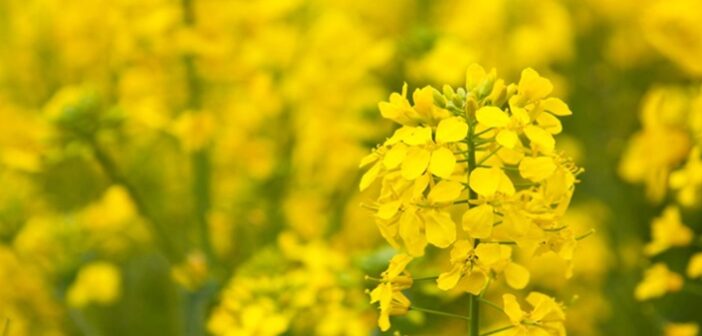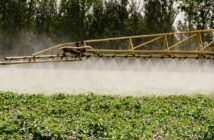After the financial results are audited, United Oilseeds will be making a profit redistribution payment to trading members, expected to be an additional £1-£2/t for each load of OSR.
Against the backdrop of the smallest UK oilseed rape harvest in 40 years, the co-operative announced a profit of £1,218,125 for the 2024–25 financial year, despite the challenging conditions and a reduction in annual turnover to £97,601,396.
MD James Warner said: “Given the challenging backdrop for oilseed rape and the wider arable markets during the marketing year in question, this is a very solid performance. Despite the well-documented pressures within the oilseeds sector, United Oilseeds has strengthened its financial position.”
Trading volumes were naturally lower as a result of the smaller national crop, with United Oilseeds’ total commodity tonnages traded down 17.87% to 310,258t, compared with 377,770t in the previous year.
Looking to 2025-26
On the back of low cabbage stem flea beetle (CSFB) numbers, excellent yields and healthy prices, United Oilseeds has seen seed sales increase by c. 25%.
James said this is in part due to the OSR Reboot initiative. The initiative’s stem larvae survey and yellow trap monitoring have provided valuable data confirming lower CSFB pressures, further supporting grower optimism and planting intentions.
“I’m extremely pleased to see the growth in seed sales this year. It feels like everything has aligned to deliver this strong uptick. We’ve worked hard and invested heavily in the OSR Reboot, which I hope has, in some part, contributed to this renewed confidence and the positive momentum we’re now seeing across the industry.”
Policy undermining UK OSR production
United Oilseeds reports that over the past decade, the decline in OSR cultivation has contributed to a £1bn negative swing in UK trade, eroding domestic self-sufficiency and pushing more reliance on imports.
Yet OSR remains one of the UK’s most valuable break crops, supporting on-farm rotation, providing a vital source of homegrown protein for livestock feed and underpinning food security in edible oils — now reduced to just 15–20% domestic supply.
From an environmental perspective, data from the OSR Reboot has demonstrated that bee numbers are up to five times higher in oilseed rape fields than in legume fallow, reinforcing the crop’s biodiversity benefits and its role in supporting pollinator populations.
However, a series of policy failures is undermining the competitiveness of UK growers. These include the neonicotinoid ban, the Sustainable Farming Incentive scheme that is removing productive land from cultivation, and additional pressures from the Carbon Border Adjustment Mechanism nitrogen tax, rising energy costs and national insurance increases.
James noted these policies don’t reduce environmental impact, they simply offshore it, creating an increasingly unlevel playing field for UK farmers.
“While we take productive land out of rotation in the name of environmental stewardship, countries like Brazil have quadrupled their OSR production in just five years. Yet Brazilian OSR yields are half those of the UK, meaning that for every one hectare we remove from production here, two hectares must be cultivated elsewhere to produce the same volume, exacerbating the deforestation picture.
“It’s a perverse outcome that undermines climate goals, economic growth, productivity and domestic food security.”
He stressed that sensible, joined-up policy is now critical to ensuring the UK maintains a viable and sustainable OSR sector, one that supports the economy, biodiversity, and the nation’s long-term resilience in food and feed supply chains.




